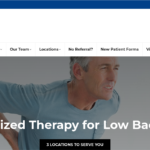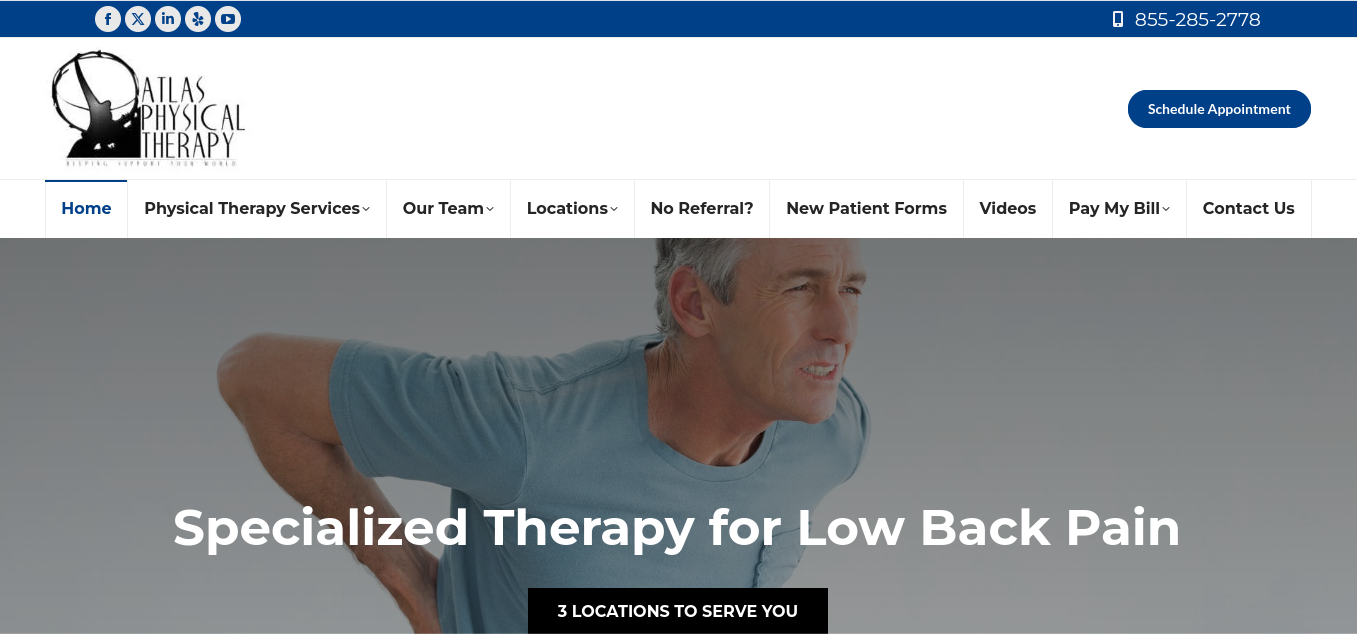Top 5 Mistakes After Knee Replacement Surgery
Knee replacement surgery is a standard procedure that can significantly improve the quality of life for those suffering from severe knee pain and mobility issues. However, the success of this survey just depends not on the procedure itself but on how well patients follow post-operative care instructions. Many patients make mistakes during their recovery, hindering their progress and leading to complications. This article discusses the top five mistakes patients often make after knee replacement surgery and provides tips on avoiding them.
Table of Contents
Toggle1. Ignoring Physical Therapy
Physical therapy is one of the most crucial aspects of recovery after knee replacement surgery. Despite this, many patients either skip therapy sessions or do not perform the recommended exercises. Physical therapy helps regain strength, improve flexibility, and ensure proper knee joint movement.
Common Mistake: Patients often feel that once the pain subsides, they can reduce or stop physical therapy. This is a significant mistake because continuous and consistent exercise is essential for a full recovery.
Tip: Follow your physical therapist’s instructions diligently. Attend all scheduled sessions and continue doing the prescribed exercises at home. Even if you start feeling better, keep up with the therapy until your therapist advises you to stop.
2. Overexerting the Knee
Staying active and following physical therapy routines is important; overexerting the knee can be detrimental. Patients sometimes push themselves too hard, too soon, believing that more activity will speed up recovery.
Common Mistake: Engaging in high-impact activities or excessive walking can strain the knee, leading to increased pain, swelling, and even damage to the new joint.
Tip: Balance your activity level. Listen to your body and avoid activities that cause pain or discomfort. Follow your surgeon’s guidelines on what activities are safe during each stage of recovery. Gradually increase your activity level as advised by your healthcare provider.
3. Neglecting Pain Management
Pain management is a critical part of post-operative care. Adequate pain control can improve your ability to participate in physical therapy and daily activities. However, some patients either underuse or overuse pain medications.
Common Mistake: Underusing pain medication out of fear of addiction or overusing it, which can lead to dependency and other health issues.
Tip: Follow your doctor’s prescription for pain medications. Communicate with your healthcare provider if you feel that your pain is not well-controlled. They can adjust your medication regimen or suggest alternative pain relief methods. Remember, managing pain effectively can help you stay active and recover faster.
4. Not Following Post-Surgery Instructions
Surgeons provide detailed instructions to help patients recover effectively after knee replacement surgery. These instructions cover various activities, including wound care, medication, diet, and physical activity. Ignoring or forgetting these instructions can lead to complications.
Common Mistake: Some patients ignore dietary restrictions, forget to take prescribed medications, or neglect proper wound care, which can result in infections or delayed healing.
Tip: Carefully follow all post-surgery instructions provided by your surgeon. Keep a checklist or set reminders to ensure you don’t miss any critical steps in your recovery process. If you have any questions or concerns about the instructions, don’t hesitate to contact your healthcare provider for clarification.
5. Failing to Communicate with Healthcare Providers
Effective communication with your healthcare providers is essential for a smooth recovery. Patients often hesitate to report issues or ask questions, fearing they might bother their doctors or appear overly concerned.
Common Mistake: Not reporting new symptoms, medication side effects, or exercise difficulties can lead to unresolved problems that may worsen over time.
Tip: Maintain open communication with your healthcare team. Report any unusual symptoms, pain, or concerns immediately. Regular follow-up appointments are crucial for monitoring your progress and addressing any issues. Remember, your healthcare providers are there to help you achieve the best possible outcome from your surgery.
Conclusion
Recovering from knee replacement surgery requires patience, diligence, and a proactive approach to post-operative care. By avoiding these common mistakes—ignoring physical therapy, overexerting the knee, neglecting pain management, not following post-surgery instructions, and failing to communicate with healthcare providers—you can significantly improve your chances of a successful recovery.
Remember, each patient’s recovery is unique. Always follow the specific advice and guidelines provided by your healthcare team. You can achieve a pain-free, active life after knee replacement surgery with proper care and attention.
knee replacement recovery, post-surgery mistakes, physical therapy after knee replacement, pain management, knee replacement tips, knee surgery recovery, post-operative care, knee replacement complications, successful knee recovery
FAQs
1. Why is physical therapy necessary after knee replacement surgery?
Physical therapy is crucial after knee replacement surgery. It helps regain strength, improve flexibility, and ensure proper knee joint movement, aiding in a faster and more effective recovery.
2. How can I avoid overexerting my knee after surgery?
To avoid overexerting your knee, balance your activity level by listening to your body and avoiding activities that cause pain or discomfort. Follow your surgeon’s guidelines on safe activities during each stage of recovery and gradually increase your activity level.
3. What should I do if my pain medication isn’t effectively managing my pain?
If your pain medication isn’t effectively managing your pain, communicate isn’t your healthcare provider. They can adjust your medication regimen or suggest alternative pain relief methods to ensure you can stay active and recover faster.
4. What are the consequences of not following post-surgery instructions?
Not following post-surgery instructions can lead to complications such as infections, delayed healing, or other health issues. It’s essential to carefully follow your surgeon’s instructions, including wound care, medication, IT, and physical activity guidelines.
5. Why is it important to communicate with my healthcare providers after knee replacement surgery?
Effective communication with your healthcare providers is essential for a smooth recovery. Reporting unusual symptoms, pain, or concerns immediately can help address issues before they worsen. Regular follow-up appointments are crucial for monitoring your progress and ensuring a successful recovery.
6. How long should I continue physical therapy after knee replacement surgery?
The duration of physical therapy varies for each patient. Follow your physical therapist’s instructions diligently and continue with the prescribed exercises until they advise you to stop. Evtherapist’start feeling better and keep up with the therapy until you achieve the desired level of recovery.
7. What activities should I avoid after knee replacement surgery?
Avoid high-impact activities, excessive walking, and any activities that cause pain or discomfort. Follow your surgeon’s guidelines on what activities are safe during each stage of recovery and gradually increase your activities as advised by your healthcare provider.
8. How can I ensure I’m taking my pain medication correctly?
Follow your doctor’s prescription for pain medications carefully. Set reminders or keep a checklist to ensure you take your doctor’s as prescribed. Communicate with your healthcare provider if you have concerns about your pain management regimen.
9. What should I do if I forget a post-surgery instruction?
If you forget a post-surgery instruction, refer to the guidelines provided by your surgeon or contact your healthcare provider for clarification. Keeping a checklist or setting reminders can help you remember essential steps in your recovery process.
10. Can I speed up my recovery by being more active?
While staying active is essential, overexerting yourself can be detrimental. Balance your activity level by listening to your body and following your surgeon’s guidelines. Gradually increase your activity level as your healthcare provider advises to ensure a safsurgeon’s effective recovery.










